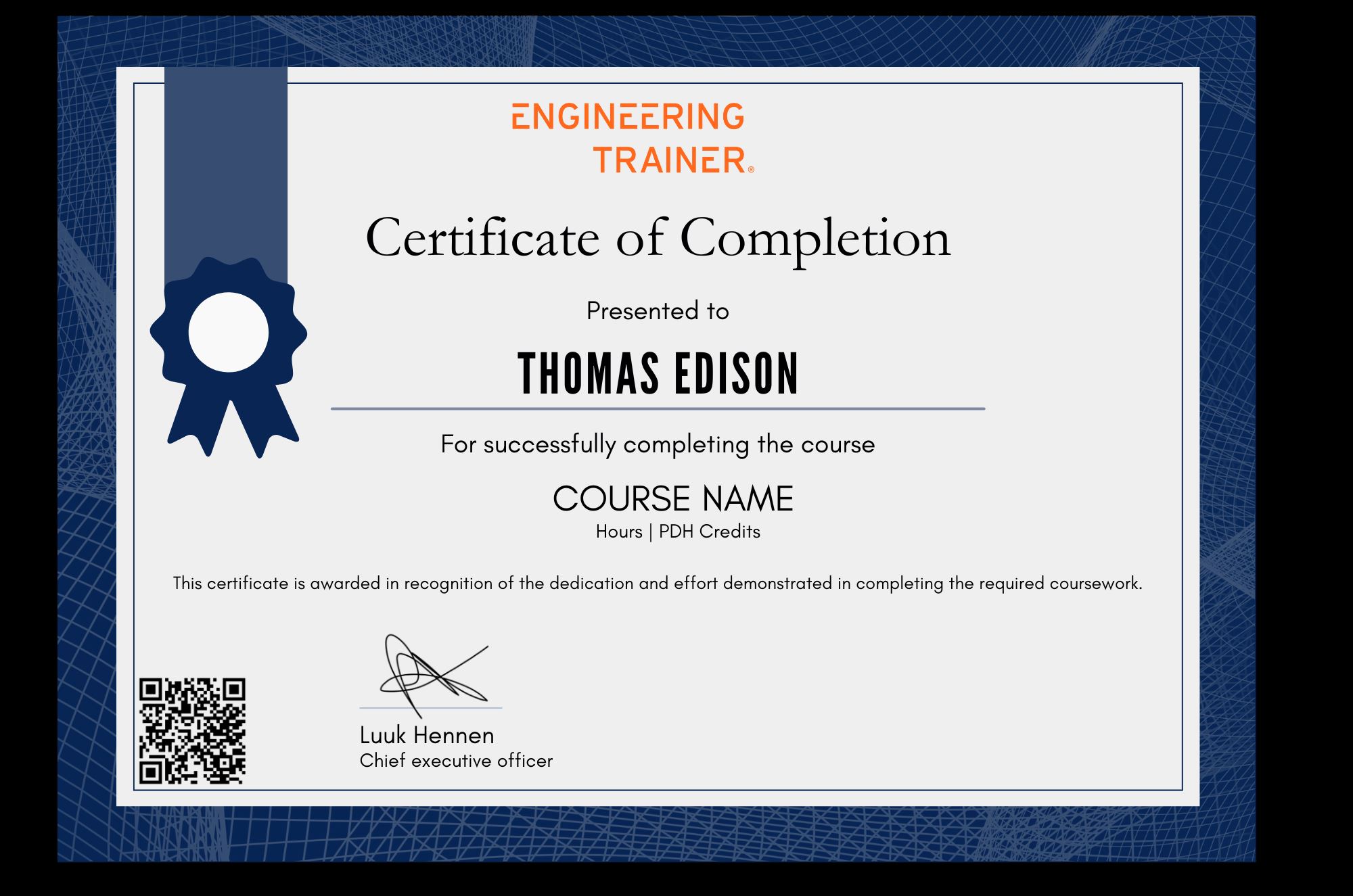The 8 Forms of Corrosion
Why take this course?
This self-paced course explores corrosion types, causes, and mitigation strategies across the refining, chemical, and power generation sectors. Covering scientific principles, real-world examples, and safety case studies, it equips professionals with essential knowledge to manage material degradation risks. The course includes video lectures, quizzes, and offers a certificate with PDH credits.
What you'll learn
After these courses, you...
• have an awareness of the main forms of corrosion found within the refining, chemical and power generation industries.
• understand the basic principles of corrosion science for these damage mechanisms.
• have an appreciation of the process systems, design features and operating conditions that are the main drivers of corrosion.
• have learned how various types of corrosion can be diagnosed.
• have seen a wide range of corrosion failure examples from the processing industry.
• have been taken through a selection of process safety cases illustrating corrosion failures, and have gained an appreciation of the lessons learned.
• understand the mitigation options available to avoid these corrosion issues.
About the course
The cost of industrial corrosion is estimated to be more than $2 trillion per year globally (NACE study). There have also been several major failures and industrial incidents within the Refining, Chemical & Power Generation sectors. It is important that key staff working within these industries have a fundamental appreciation of corrosion types: their threats, diagnosis, and mitigation.
This self-paced learning path will introduce students to the material degradation, corrosion, and cracking mechanisms found within the refining, chemical, and power-generation sectors. The learning path breaks these mechanism types down into 8 main courses. Each of these modules explains the scientific principles involved and shows real-world examples. Industrial safety incident videos are also presented and the lessons to be learned from each of these are discussed by the instructor.
This introductory learning path to corrosion contains 8 online courses, which in total are 13 hours of video content. All training content is provided through your EngineeringTrainer account.
Who should attend this course
This course is designed for...• Starting Materials & Corrosion Engineers
• Mechanical Engineers, Design Engineers
• Chemical & Process Engineers/Technologists
• Inspection Engineers
• Production Unit Management/Operations
• Leads Maintenance Planners
• Procurement teams
Prerequisites
No prior experience in material sciences is required.Program & Details
-
Welcome
1. Welcome & Your instructor
2. Content overview
3. How to use this course -
Course 1 - Stress Corrosion Cracking (SCC)
1. Course Introduction
2. Most Common SCC types
3. Earliest reports of SCC
4. History of SCC
5. SCC mitigation by design & operation
6. Some industrial systems susceptible to SCC
7. Scientific overview -
Course 2 - Crevice Corrosion
1. The most common crevice corrosion environments
2. Typical process systems susceptible to crevice corrosion
3. Scientific overview
4. Crevice corrosion mitigation -
Course 3 - Hydrogen Damage
1. The main forms of hydrogen damage
2. Some industrial systems susceptible to hydrogen damage
3. Scientific overview
4. Hydrogen damage mitigation -
Course 4 - Pitting & Localised Corrosion
1. Localised corrosion types
2. Pit shape & growth
3. Autocatalytic nature of pitting
4. Initiation & meta-stable pitting
5. Solution composition, metallurgical variables, velocity & diffusion effects
6. Mitigation measures -
Course 5 - Intergranular Corrosion (IGC)
1. Stainless steels
2. Scientific principles of IGC
3. Weld decay
4. Forms of IGC found in industry
5. Tainless steel IGC mitigation
6. Knife-line attack
7. IGC of other alloys -
Course 6 - Erosion, Erosion-Corrosion & Flow Accelerated Corrosion (FAC)
1. Mechanical Erosion
2. Erosion-corrosion
3. FAC
4. Erosion-Corrosion parameters
5. Case Study
6. Mitigation measures -
Course 7 - Galvanic Corrosion
1. Galvanic series
2. Area effect
3. Distance effect
4. Residual elements
5. Environmental effects
6. Prevention
7. Mitigation measures -
Course 8 - Selective Leaching
1. Dezincification characteristics
2. Dezincification mechanism
3. Mitigation measures
4. Graphitic corrosion
5. Other alloy systems
6. High temperatures -
Final Notes & Certificate
1. Congratulations
2. Course evaluation survey
3. Your Personal Certificate
4. Rate this course
5. Related courses
Certification


Why choose EngineeringTrainer
-
Unlimited Team-wide Access
-
Advance Technical Competences
-
Courses by Industry Authorities
Since using EngineeringTrainer our internal mentorship has a much more matured character.
Logan Chapman - COO at Chapman Consulting Inc.
Request a Quote
Train Smarter. Grow Faster.
Build real-world skills that help you make better engineering decisions, reduce errors, and stand out in your field.






